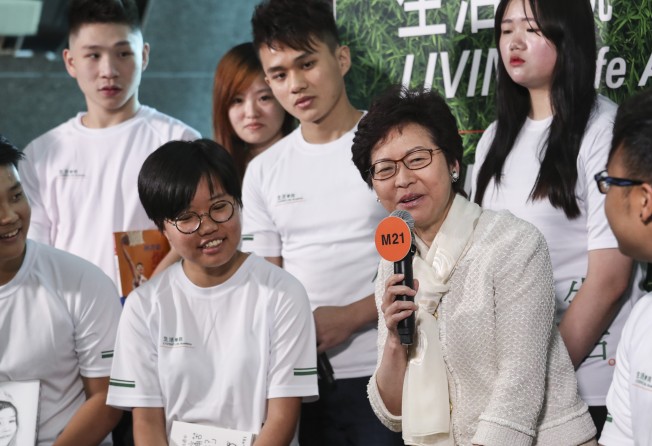Youth policy smacks of window dressing
With high salaries and vague job descriptions, it is little surprise that taxpayers are sceptical about the administration’s plan to recruit people from the digital generation

The chief executive’s pledge to revamp the Central Policy Unit with young advisers recalls the criticism 10 years ago of the new political appointee system to groom potential talent for government work. It is reasonable to assume Carrie Lam Cheng Yuet-ngor’s administration would learn from that experience. Alas, the revamp of the think tank is already courting one controversy that dogged the appointee system – the offer of attractive packages for novices with little or no experience in politics and public administration and little indication of how it would be justified.
Lam is offering pay packets of up to HK$95,000 a month in an open recruitment exercise, ranging from HK$30,000-HK$48,000 for a policy and project coordination officer to HK$60,000 to HK$95,000 for a senior officer, depending on qualifications and experience. In her policy address last month, Lam said the government would hire 20 to 30 people to join the revamped unit so they “can gain experience in public administration and the voices of young people can he heard at senior levels of government”. On the face of it, without a job description or a firm indication of what they will be doing, these are high salaries for young people lacking relevant experience.
The officers will serve at the renamed Policy Innovation and Coordination Office and be responsible for policy research, innovation, coordination and “joint review of creative projects by different sectors”. That’s fine as far as it goes, but we need a better explanation of what they will do to justify these salaries. After all, taxpayers do not pay people to learn on the job. Their expectations will be high, as they will be for the young people who take up the promised 15 per cent of positions on government advisory bodies. They do not expect to see young people added to advisory panels as window dressing.
It would help, of course, if we could see some evidence that young appointees are being listened to. It would be interesting to know how many sparks of interest among potential candidates for the new positions were snuffed out by the account of a student invited to sit on a committee on prevention of student suicides. Althea Suen Hui-nam, 21, a final-year social work student and sole younger committee member, said pro-establishment members dismissed her views on flaws in the education system as “unscientific” or “not evidence based”. Understandably, this prompted her to question the government’s sincerity about engaging young people in policymaking. It doesn’t do a lot for confidence in Lam’s plan for policymaking to be more inclusive of the digital generation. More informative job descriptions and expectations appropriate to the salaries being offered would go some way to easing concerns.